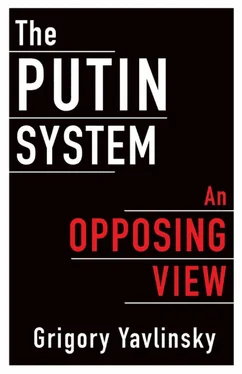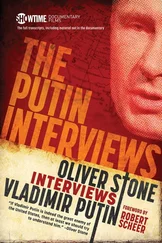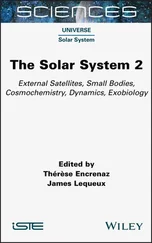In my past writings, I have noted that the developments at the turn of the century prompted many of us to reassess our views on this subject. Only twenty years ago, mainstream thinkers and experts in the West tended to believe that, sooner or later (more precisely, in the coming decades), all societies were going to end up accepting the basic principles of political order that are most often called “liberal democracy.” These principles include the separation of power among government’s distinctive branches, the legal impossibility of usurping power and establishing a monopoly on its exercise, competition among political parties for the right to form the executive branch of government, elections to representative bodies based upon universal and equal voting rights, the supremacy of law and respect for minority rights, and a number of other, second-level principles. Essentially, these principles are inherent (or at least are supposed to be inherent) in the competition-based model of the political organization of the state. These principles not only were recognized as universal basic values but also were viewed (in the spirit of Francis Fukuyama’s “end of history”) as the inevitable outcome of a progressive development of any existing national community, regardless of the historical and cultural differences among them. From this point of view, any autocratic regimes still existing at the end of the twentieth century were viewed as anachronistic holdovers that the course of history itself was going to remove from the stage in a relatively short period of time.
Even today, this point of view is at the very least prevalent among Western academics and experts, though not nearly to the extent that it was fifteen or twenty years ago. Under the influence of several factors, the model of a “universal future” began to recede from its dominant position and was partly modified, with its ongoing reassessment going in at least two directions. On the one hand, the theory of multiple civilizations has abruptly gained popularity. This theory views many of the tensions in international (as well as in interethnic and interfaith) relations as an irreconcilable and intractable “clash of civilizations.” Strictly speaking, this theory was virtually ubiquitous during the Middle Ages, though it was described in the simple and relatively unsophisticated forms that suited those times, and, with some qualifications, it was part of the state ideology of most countries—to the extent that we can apply the term “ideology” to that era in history. In the second half of the twentieth century, it seemed that faith in the power of a humanistic approach to the world and in the significance of progress and universal “democratic values,” as well as the spread of the notions of political correctness during the century’s final few decades, had completely marginalized the theory of the “clash of civilizations” and that it was disappearing from the stage. Meanwhile, the values that were usually called “European” had seemingly achieved the status of “universal human values.”
Nevertheless, by the end of the twentieth century the theory of the multiplicity of civilizations suddenly started acquiring new followers, including followers in the Western world, and, so to speak, becoming legitimized in the scholarly community. [1] The lively academic debate spurred by the works of Samuel Huntington and the concepts that he put forward is an example of such a legitimation of this theory. See, for example, Huntington, The Clash of Civilizations and the Remaking of World Order (New York: Simon and Schuster, 1996).
Furthermore, the basic tenets of this theory began to shape the practical activities of politicians in such areas as foreign and defense policy and even, at least to some extent, in the humanitarian sphere. For example, the practice of using double standards, which is widespread in today’s international relations, is essentially nothing but a practical political reflection of the concept of “different human civilizations.” In this framework, the actions of one’s own civilization that its representatives view as acceptable and ethical appear unacceptable and unethical when practiced by others. And the opposite is also true: what is viewed as completely unacceptable, an “absolute evil” in civic terms, within one’s own political system is recognized as not only acceptable but even convenient and useful within political systems organized in somewhat different ways. This framework can serve as a convenient tool for dominant groups seeking to consolidate their power, as it is easier to rally mass support for themselves by identifying an alternative “civilization” as a common enemy.
At the same time, the assumptions about a “natural” universal world order, which had been characteristic of mainstream Western thought at the end of the twentieth century, were being subjected to reassessment from yet another end. Namely, it became increasingly in vogue to view international relations as nothing more but a geopolitical game. In this perspective, strong players wrestle with each other to expand their respective spheres of influence, while the weaker ones try to gain as much advantage for themselves as they can, using the opportunities provided by this struggle and its associated tensions. From this point of view, even the disappearance or a significant relaxation of global ideological conflicts (as, for example, the de facto disappearance from the international stage of so-called world communism as a global ideological alternative to “liberal democracy”) does not alter the logic of world politics as the struggle among various states over influence, power, and resources.
To put it otherwise, this current of thought denies the primacy of ideology in international relations, viewing it as merely one of the factors that shape the configuration of the struggle among competing global players. Accordingly, in this framework, the blurring of ideological differences is bound to be compensated for by other factors that justify the need to play the global game and win control over resources (broadly defined, including the resource of political power). Meanwhile, the essence of global politics as a game remains the same, from time immemorial to our own day. Zbigniew Brzezinski, the author of The Grand Chessboard , is often cited as virtually the foremost representative of this analytical current.
In reality, this logic is indeed pronounced, though not as much in present-day writings on geopolitics as in the ongoing commentary by practicing politicians, intended to shape the opinions and decisions of others. Yet this way of thinking does not and never has had anything novel or groundbreaking in it. Often it is essentially nothing more than an extrapolation into our times of the perennial view of international relations as a tussle among princes and states pursuing expansion of their own power. It is nothing but an attempt to thwart the temporary dominance of “politically correct” views about the practical feasibility of establishing a minimally harmonious and sustainable universal world order in the future.
In any case, the universal convergence of various political systems on the basis of universal liberal democratic values, which so recently seemed to be forthcoming and unavoidable, is already viewed by many as a utopian vision. Although authoritarian political systems are still viewed as most likely to collapse or to be transformed into competition-based systems, in the intermediate future this probability no longer looks as obvious and inevitable as it once did. At present, the trajectory and time frame of the evolution of existing autocracies are seen by developed countries as more convoluted than they appeared just recently.
It is increasingly acknowledged that the expectations of the impending, ineluctable collapse of all dictatorships and “tyrannies” as a result of the spread of education and political activism among the masses have been mistaken and impractical. There is also a growing recognition that the process of liberal democracy conquering the world is a lengthy one and, on some terrains, is easily reversible. Granted, the vision of a competition-based (“democratic”) political system, with broad guarantees of individual rights and the rights of various minorities, as the decisive stage of the political history of the world is still prevalent in the public consciousness. Yet, at present, this vision accepts, at the very least, the possibility of a protracted existence and internal development of alternative political systems.
Читать дальше












